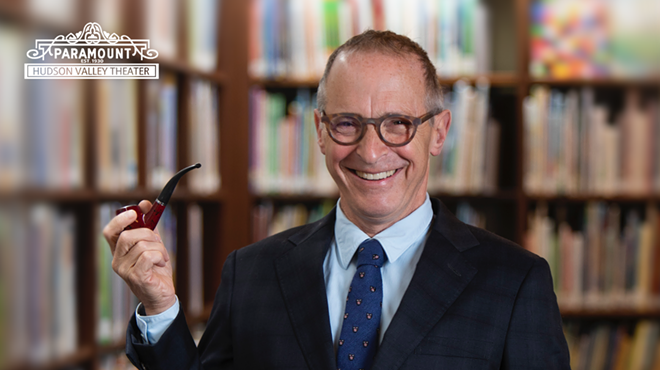The Problem Lies Not on Wall Street…
To the Editor:
Kudos to Jason Stern for his piece in the November issue [Esteemed Reader]. In it he encourages us to occupy ourselves. Indeed! Occupy Wall Street has become necessary in the social arena in order to distance ourselves from the hocus pocus of politics and finances. But the root of the problem, as Stern makes clear, is within ourselves. There we need to disentangle from the hocus pocus of constantly puffing up our self—our ego, our “me”—at the expense of the rest (the 90 percent or so) of who we truly are.
As a follower of the teachings of the Buddha, which I also pass on to others, I know this occupation of ourselves first-hand. That’s what meditation is about: an invitation to occupy ourselves and be present with all that we are. I hope Stern will not mind if I borrow his Occupy Ourselves as the title for one of my talks at the next retreat of our meditation group.
Jose Reissig, Rhinebeck
Catholicism to the Rescue
To the Editor:
Which of the following private charities collects and distributes more aid and services annually? 1. Catholic Charities 2. American Red Cross 3. Salvation Army 4. American Cancer Society. According to Forbes, the answer is number one. The Church’s care for the ill, the needy, the unwanted goes back a long way and continues today, though now with the legalization of the destruction of life in the womb, it has had to close many of the orphanages whose door were once open to all. I think we can be sure that if that awful Supreme Court decision, a decision that has led to the destruction of 50 million new lives at this point, is reversed and the lives of the “unwanted” are again protected, the Church will be ready as usual to help.
Now, you might wonder which staff writers could possibly have missed the correct answer? Jason Stern may have. In the September issue [Esteemed Reader] he wrote: “religions make generosity an obligation, which removes its force. But religion is for those whose conscience is asleep.” However, ecent research seems to corroborate the fact that belief, especially with regard to religion, can be an internalizing force for good. Arthur C. Brooks, professor of public administration at Syracuse University, wrote in his recent book Who Really Cares: “In years of research, I have never found a measurable way in which secularists are more charitable than religious people. Secular liberals are 19 percentage points less likely to give to charity each year than religious conservatives.” He calculated that the Dakota farmer can be counted on to give more per capita each year than the San Francisco swinger. If it’s all obligation with sleeping, religion-plagued consciences at work, many people indeed are the beneficiaries. From the start, Christianity has given priority to the poor and those in need of help.
It’s a point that might have helped movie reviewer Jay Blotcher get the right answer [Woodstock Film Festival preview, 9/11]. He believes the time has passed when Catholics “delivered food and clothes to the ghettos of America,” but it hasn’t. Viewing as many movies as he does may hinder getting the facts and stats. There are still Father Damiens working among the lepers and, in spite of his view that Catholics lack compassion for homosexuals (how’s that for stereotyping about 70 million fellow Americans), worldwide about one-fourth of all AIDS sufferers are in Catholic facilities. True enough, Mother Theresa is dead, but hundreds of her nuns along with thousands from other Catholic organizations continue to work among the poorest of the poor regardless of sexual inclinations, both here and abroad.
Dick Murphy, Beacon
- Home
- Arts
- Food & Drink
- Towns
- Home & Design
-
Towns
- Accord
- Amenia
- Beacon
- The Berkshires
- Catskill
- Chatham
- Cold Spring
- Cornwall
- Ellenville
- Gardiner
- Garrison
- Germantown
- Goshen
- Great Barrington
- Hunter
- High Falls
- Highland
- Hillsdale
- Hopewell Junction
- Hudson
- Hyde Park
- Kerhonkson
- Kinderhook
- Kingston
- Marlboro
- Middletown
- Millbrook
- Millerton
- Montgomery
- Mount Tremper
- New Paltz
- New Windsor
- Newburgh
- Orange County
- Pawling
- Peekskill
- Phoenicia
- Poughkeepsie
- Putnam County
- Red Hook
- Rhinebeck
- Rosendale
- Saugerties
- Stone Ridge
- Sugar Loaf
- Tivoli
- Wappingers Falls
- Warwick
- Woodstock
- Westchester
- Lifestyle
- Horoscopes
- Cannabis
- Wellness
- The River
- Events
- Chronogrammies
- Newsletters
- Add Your Event
- Support Us
- Login
- sign in
- Username
Support Chronogram
Website
Chronogram











